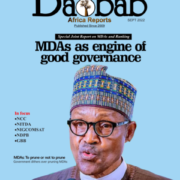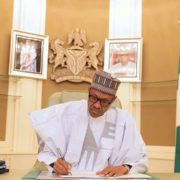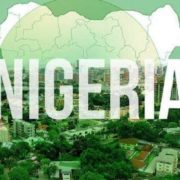Between ballots and bias, the Igbo struggle for belonging in Nigeria’s commercial capital.
Lagos has long been celebrated as Nigeria’s melting pot, a city where ethnicity is expected to dissolve into the pursuit of economic opportunities. Yet, beneath this image of cosmopolitanism lies a persistent current of political bias, one that casts the Igbo community as outsiders in the very city their enterprise has helped build. Far from being incidental, this bias is systematically reinforced through political narratives that weaponize ethnicity as a tool of control. It must be said, Lagos is also home to many Yoruba leaders who have defended inclusivity and condemned hate speech.
2023 elections and ethnic fault lines
The 2023 elections revealed this fault line with disturbing clarity. The U.S. Embassy and Consulate in Nigeria, for instance, noted with concern the “disturbing acts of violent voter intimidation and suppression” and the use of “ethnically charged rhetoric” during the gubernatorial and state assembly elections. Independent reports and academic studies corroborate this, highlighting how ethnic narratives framed the candidacy of Peter Obi of the Labour Party as an “Igbo agenda” to take control of Lagos. This narrative intensified political tensions and led to widespread voter suppression, particularly targeting Igbo voters in areas like Oshodi and Ajegunle.
This pattern is not new. For decades, the Igbo in Lagos have been alternately courted for their economic vitality and vilified as political liabilities. Their visibility in commerce and demographics makes them indispensable to the city, yet their political aspirations are often met with suspicion. The result is a cycle of victimization that undermines not only the rights of a community but also the democratic fabric of Nigeria’s most important city.
Rise of ‘Igbo-phobia’ in Lagos
The Igbo people, globally known for their entrepreneurship and significant contributions to commerce, have built thriving enterprises. However, this economic success has made them targets of envy and animosity. In the run-up to the 2023 elections, Igbo-dominated markets in Lagos were set ablaze by arsonists, with the intention of destroying their economic livelihood.
A notable incident was the Akere Spare Parts Market fire on March 8, 2023, which destroyed over 200 shops. While the official cause was not always clear, many traders alleged foul play and political motives, citing a phone call received by the market chairman that warned of an arson threat just before the blaze.
This rhetoric has been accompanied by more direct expressions of “Igbo-phobia,” such as calls for the expulsion of Igbo people from Lagos. The infamous statement by Musiliu Akinsanya, popularly known as MC Oluomo, who warned Igbo people to “stay at home” on election day if they would not vote for the All-Progressives Congress (APC) candidates, demonstrates how deeply rooted this ethnic animosity has become. His statement, captured in a viral video on You Tube, was seen as a thinly veiled threat of violence and was widely condemned by civil society groups.
Streets renaming and fears over ethnic inclusivity
In a bid to further exploit the fault lines between Igbos and Yorubas, the Bariga Local Council Development Area and the Ajeromi-Ifelodun Local Government Area recently renamed streets, raising fears over ethnic inclusivity.
In Ajeromi-Ifelodun, for instance, a total of 24 streets were renamed, with several Igbo names replaced by Yoruba ones, such as the change from Imo Eze Street to Layiwola Oluwa and Mba Street to Sanwo-Olu Road. In Bariga, the Famous Charly Boy Bus Stop, was not even spared as it was renamed Olamide Badoo Bus Stop. While local officials claimed the changes were due to non-compliance with administrative procedures, many residents viewed it as an attempt to erase the Igbo presence in the community.
Yoruba/Igbo competition fostering vicious social media demagogues
This rhetoric and competition between the Yorubas and Igbos have raised a dangerous army of social media demagogues on both sides, with groups like “Yoruba Ronu” and section of the “Obidients Movement” supporters of Peter Obi, Labour Party Presidential candidate in the last elections raising tensions to feverish heights.
This negative inter-group reciprocity between the Igbo and Yoruba in Lagos have been marked by a circle of vulgar and abusive languages on social media platforms such as X, Whats App and Facebook raising tension and fear. If left unchecked, this could swiftly pull Lagos towards serious conflict.
The Rwandan genocide was sparked by a radio call to attack the Tutsis on April 6, 1994, leading to a macabre killing that claimed over 800,000 lives and shocked the world. Just like Rwanda, the ethnic profiling and killing of over three million Jews led to the worst Holocaust in human history.
Lessons from Darfur and the dissolution of former Yugoslavia
The same ethnic cleansing of the people of Darfur led to the partition of Sudan, and the Srebrenica genocide in 1995 ultimately led to the dissolution of former Yugoslavia. Genocide doesn’t just happen overnight. It moves in degrees over the years, months, and days, and those orchestrating it know precisely what they are doing.
As Nigerians, we must wake up as our country is very divided right now before our very eyes. There is so much propaganda going on, and people are not paying attention. No country is immune from what happened in Rwanda, Srebrenica, Darfur, or the Holocaust. We see the signs on social media, in news outlets, in politics, and on real life, where unscrupulous elements among us are bent on exploiting the divide and seriously working day and night to sow seeds of discord and animosity.
Current global peace efforts have been reactive, often launched after violence flares. The Lagos State Government must be alive to its responsibilities by beginning to stem this tide of ethnic profiling, not only of the Igbo but for all minorities.
Promoting positive inter-group reciprocity
We must learn from societies like Norway, Costa Rica, and Mauritius where peace is not accidental but purposefully cultivated. They have embedded practices that foster positive inter-group reciprocity, from integrated education systems to inclusive government. In stark contrast, societies entrenched in division and violence have systemically allowed negative reciprocity to flourish unchecked, through exclusionary structures, divisive leadership, and unresolved historical grievances.
Finally, political and community leaders must learn to model and promote peaceful behaviour proactively. Leadership that consistently demonstrates positive reciprocity can significantly influence societal norms and behaviour. By actively engaging in constructive dialogue, collaborating across ideological divides, and publicly committing to peaceful conflict resolution, leaders can set a powerful example, creating ripple effects that can extend deep into communities that are fragmented.
Anagba, Joseph Obidi. Researcher, Institute for Peace and Conflict Resolution. (IPCR). Abuja.





















